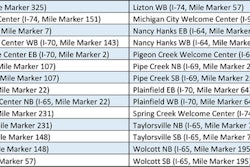 “We’re seeing more and more facilities not allowing drivers to leave their cab for any reason,” said Jim Nicholson, vice president of Loadsmart. Shippers and receivers have instituted a “mixed bag of protocols” regarding social distancing to prevent the transmission of COVID-19. In most cases, however, that means “fewer options for breaks, restrooms and interactions” for drivers.
“We’re seeing more and more facilities not allowing drivers to leave their cab for any reason,” said Jim Nicholson, vice president of Loadsmart. Shippers and receivers have instituted a “mixed bag of protocols” regarding social distancing to prevent the transmission of COVID-19. In most cases, however, that means “fewer options for breaks, restrooms and interactions” for drivers.Wider Group, Inc., a roughly 130-truck general freight carrier out of South Holland, Illinois, in recent weeks transitioned its driver recruiters to a new role — reaching out to the company’s existing drivers and simply touching base.
“We’re establishing contact with our drivers every day,” said Shawn Miller, the company’s vice president of safety. “Just to see how they’re doing, to ask how their family is doing.”
Beyond ensuring their drivers’ wellbeing and serving as a support resource, the move serves another purpose: Helping keep recruiters busy and working, since the fleet, like many others, has mostly paused hiring and onboarding new drivers. “We’re trying to keep everybody employed,” said Miller.
A month into the COVID-19 coronavirus outbreak in the U.S. and its upending of society and the global economy, fleets are still adjusting to the shockwaves — and the new normal — of a sudden freight slowdown combined with new ubiquitous social distancing practices.
In many cases, that means shippers and consignees are skipping signing or issuing necessary documents like proofs of delivery and bills of lading. Some shippers and receivers have instituted a litany of new requirements for drivers entering their facilities, including, at some places, checking drivers’ temperatures before allowing them to enter. Detention time at busy distribution centers has ballooned past the usual two to three hours to half days, if not longer. Fleets have also reported having to quarantine drivers on the road, while others have already had to lay off drivers because business has stalled.
“We’ve got 11 drivers at home today,” said Hope Brown, safety compliance officer at the 25-truck Alert Motor Freight out of New Jersey. “It’s been really tough.” The fleet’s primary business is pre-loaded trailers of appliances, insulation and other construction materials and building products for companies like GE, St. Gobain and Home Depot and Lowe’s.
Wider Group hasn’t had to make any cuts yet, as the fleet’s kept busy servicing major retailers like Costo, Walmart, Target and Sam’s Club, said Miller. At those shipping and receiving points, drivers are facing “social distancing to an extreme,” he said, such as being told not to leave their trucks.
“It’s horrible,” he said. Shippers and consignees “aren’t signing paperwork. They aren’t taking paperwork from drivers. When a truck shows up, they tell them to back up [to the dock], then they either call the driver or use a CB and tell them he’s loaded or unloaded and to leave.”
The practice is leading to headaches in trying to get loads factored, since there’s often no signed bills of loading and no proofs of delivery. Likewise, some brokers have told the fleet they won’t pay for the load without a signed proof of delivery, said Miller.
“They’re not even taking the paperwork,” said Brown of her fleet’s shippers and receivers. “I can’t have a claim come against me for something they wouldn’t sign for.”
Jim Nicholson, vice president of sales and operations at freight matcher Loadsmart, said he’s heard much of the same from carriers his company works with. “We’re seeing more and more facilities not allowing drivers to leave their cab for any reason,” he said. Many are still dropping off a bill of lading to drivers, but that’s the extent of most interactions.
Many of the shippers and receivers serviced by Bee-Line Transportation, a 60-truck Houston-based fleet, are requiring drivers to wear masks, said James Jeter, the company’s safety director. The fleet has told its drivers not to exit their trucks at a facility unless they “absolutely need to,” Jeter said, and the company has locked down its own offices and facilities, not allowing in any outsiders. The fleet is also complying with Centers for Disease Control guidance on cleaning truck cabs, said Jeter, and most of its drivers are wearing masks. “We’re focused on everybody staying safe, healthy and efficient during the pandemic,” he said.
Bee-Line is a dry van carrier and still has plenty of freight, Jeter said. Retail and food accounts for much of its business, as well as loads used in retail freight, like pallets.
Some shippers and receivers are going well beyond a simple mask requirement. Walmart, for instance, is checking body temperatures of drivers entering all its facilities and “asking drivers to answer some basic health screening questions,” said a Walmart spokesperson.
Miller said his drivers have encountered this, as well as long lines entering and leaving such facilities. His fleet has generally been towing Walmart-branded trailers and, thus, has access to the shorter entry lanes at Sam’s Club and Walmart facilities.
The volume of trucks entering major big-box distribution centers, however, is prompting frustration for some, he said. Long wait times, coupled with shippers and receivers blocking drivers from entering facilities, wears on drivers, especially when they’re being told at such facilities to use a bottle or bucket to go to the bathroom in their truck. “I had a guy last week get so frustrated he brought his truck back [to us] and said ‘this is too crazy. Call me whenever this gets settled out.'”
Wider Group also has been forced to place two drivers into quarantine on the road after they interacted with dock workers in Chicago who shortly after tested positive for COVID-19. As of Wednesday of last week, they were in their tenth day of quarantine at hotels on the road, with neither reporting symptoms.
What was the exception has become the rule in terms of detention fees, said Brown of her fleet’s experiences. Alert Motor Freight starts charging customers for detention time after two hours, and in recent weeks, the number of times they’ve had to charge for excessive detention has accelerated, she said.
Though many carriers are feeling the pain of the economic shutdown, especially those in heavily exposed industries like events and manufacturing, there’s “cautious optimism” for a freight recovery to begin in the third quarter of this year, said Nicholson.
The spot market has already started to cool after the brief uptick in the third week of March, mostly isolated to the grocer and reefer sectors, said Nicholson, but “transportation will be an early beneficiary … as we transition back to a normal state,” he said, such as when retailers begin to restock and as manufacturing facilities come back online, potentially late in the year’s second quarter. An early indicator of the beginning to any potential recovery, he said, will be ocean shipping activity. Should imports for the U.S. and Europe start rebounding, that will likely signal the start of a recovery period.
“Truckload carriers are resilient,” Nicholson said. “I firmly believe carriers will see their way through this.” In the interim, stimulus money from Washington “should to an extent help improve the likelihood of smaller and mid-sized operators to navigate through these times.”












